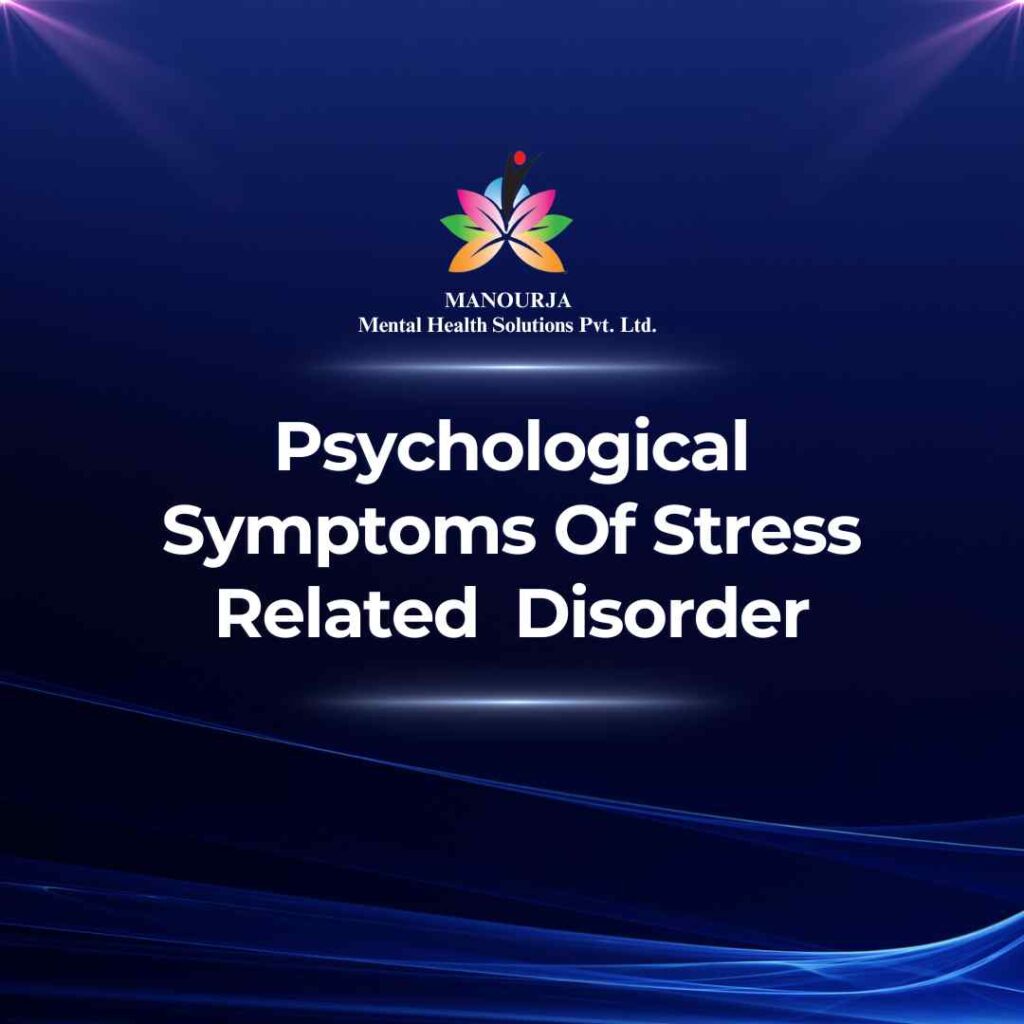Psychological Symptoms of Stress Related Disorder

Psychological symptoms of stress-related disorders involve a range of emotional and cognitive responses that significantly impact an individual’s mental health and daily functioning. These symptoms can vary widely depending on the type and severity of the disorder, but common psychological manifestations include:
- Anxiety and Worry: Excessive and persistent anxiety is a hallmark of many stress-related disorders. This can include constant worrying about future events, ruminating on past incidents, and feeling generally tense or on edge.
- Depression: Feelings of sadness, hopelessness, and a loss of interest in previously enjoyed activities can occur. Depression in the context of stress-related disorders may result from the prolonged emotional strain and exhaustion of coping with chronic stress.
- Irritability and Mood Swings: Individuals may experience heightened irritability and fluctuations in mood. Small irritations can seem disproportionately frustrating, leading to anger outbursts or conflict in relationships.
- Difficulty Concentrating: Stress can significantly disrupt cognitive functions, making it hard to focus, make decisions, or remember important information. This can affect performance at work or school and impair daily activities.
- Feelings of Overwhelm: A sense of being overwhelmed or unable to cope with daily tasks is common. This may result from the accumulation of stress and the feeling that one’s resources are inadequate to manage the situation.
- Emotional Numbness: Some people might respond to stress by feeling emotionally numb or detached from their feelings and surroundings. This can be a protective reaction to overwhelming stress or trauma.
- Hyperarousal or Hypervigilance: Especially noted in disorders like PTSD, this involves being excessively alert or watchful. Individuals may feel like they are constantly ‘on guard’ against potential threats or danger.
- Flashbacks and Intrusive Thoughts: In cases of trauma-related stress disorders, individuals may experience sudden, vivid recollections of the traumatic event or have persistent intrusive thoughts about the trauma. These can be distressing and disruptive to daily life.
- Panic Attacks: Sudden episodes of intense fear or acute discomfort, accompanied by physical symptoms such as palpitations, sweating, shaking, or a feeling of shortness of breath, might occur. Panic attacks can be triggered by specific stress or occur unexpectedly.
- Avoidance Behavior: To reduce distress, individuals might avoid places, people, thoughts, or activities that remind them of the stress or trauma. While this might provide short-term relief, it can lead to more significant issues like social isolation or a restricted lifestyle.
Recognizing these psychological symptoms is vital for seeking appropriate treatment and support, which may include therapy, medication, and lifestyle changes aimed at reducing stress and enhancing coping mechanisms. This support is crucial for managing symptoms and improving overall mental health and quality of life.
At MANOURJA, we believe in the transformative power of counseling. Our experienced therapists offer a safe and supportive space where you can explore your thoughts, emotions, and challenges. Through personalized counselling sessions, we’ll work together to develop coping strategies, build resilience, and achieve lasting positive change. Discover the path to a healthier, happier you with MANOURJA counselling services.
MANOURJA Rehabilitation Services
At MANOURJA, we’re dedicated to helping you in rebuild your life, after difficult times. Our rehabilitation services focus on understanding what you need to move forward, whether you’re recovering from addiction, trauma, or any psychological – social challenges. We create personalized plans, that are all about helping you, regain your strength and find hope again. With a caring team by your side, you’ll have the support to make real progress and take steps toward a brighter, healthier future.
